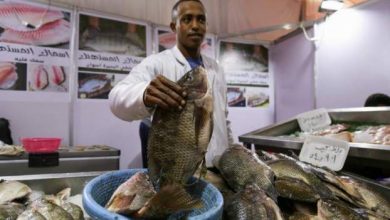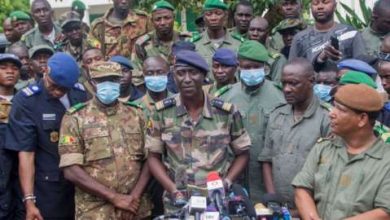International
Is Facebook undermining democracy in Africa?

Facebook is under fire in Africa for undermining democracy, with critics saying the social media giant has allowed its platform to be weaponised for co-ordinated misinformation campaigns.
The role of false news has taken centre stage in every single one of the continent’s eight national polls this year – and last week Facebook said an Israel political consultancy was behind much of it.
It banned Archimedes Group, which it said was responsible for a network of those masquerading as African nationals, and removed 265 Facebook and Instagram pages and groups involved in “co-ordinated inauthentic behaviour” mainly targeting Nigeria, Senegal, Togo, Angola, Niger and Tunisia.
Nanjira Sambuli, from the World Wide Web Foundation, says it has taken Facebook too long to pay attention to this problem in developing countries.
“Democracies are at risk on this continent, and unfortunately, social media platforms are fast becoming the sites of aggravation,” she told the BBC.
Some feel the continent’s weak regulations on privacy and data protection have meant Africa has been used as a “guinea pig” for privacy violations.
“We’re a training ground. Once it works in Africa, they replicate that and they use it across Africa other geographies,” Cameroonian tech entrepreneur Rebecca Enonchong told the BBC.
Double standards
She cites the Cambridge Analytica scandal as a prime example of the pass Facebook gets in Africa for the same wrongdoing for which Western regulators were less forgiving.
In 2018, Facebook and British data analytics firm Cambridge Analytica were at the centre of a dispute over the harvesting and use of personal data of more than 230 million users, using it to try and alter how people voted in multiple countries including Nigeria and Kenya.
As a result of the scandal, Cambridge Analytica closed operations and the US Senate summoned Facebook CEO Mark Zuckerberg to testify before Congress.
In reaction to last week’s Facebook announcement, Congolese blogger Simeon Nkola Matamba tweeted: “The question should rather be, why does Facebook feel comfortable doing in Africa what they’d be less likely to do in other parts of the world? As much as Facebook must comply with ethics our institutions and regulators must up their game (if they have any) and protect people’s rights.”
Those behind the Israeli-linked Facebook pages spent about $812,000 (£641,000) on the platform between December 2012 and April 2019 and gained a total of 2.8 million followers.
The Archimedes Group has not returned the BBC’s repeated requests for comment and has removed all instances of its work from its website.
‘Darth Vader of Nigeria’
Many of the now-deleted pages focused on the 2019 Nigerian elections, a review by US-based political think tank The Atlantic Council’s Digital Forensic Research Lab (DFRLab) found out.
One of the pages taken down, “Make Nigeria Worse Again”, appeared to be a trolling campaign aimed at Atiku Abubakar, a former vice-president and President Muhammadu Buhari’s main opponent. “The page included a banner image of Mr Abubakar as Darth Vader, the notorious Star Wars villain,” the researchers wrote.
Idayat Hassan, from the Abuja-based Centre for Democracy and Development, told the BBC it was difficult to track who had commissioned the pages as during elections “there’s always a will to try and sway people along either religious or ethnic lines”.
DFRLab also found pages posing as disinformation watchdogs such as “C’est faux — les fake news du Mali”, which claimed it was founded by students in Mali but was actually run by administrators in Portugal and Senegal.
The researchers speculate that it was probably a front to build its credibility as it was not linked to any party or candidate and concentrated on “fake news” about Africa or Africans.
Another page removed was “Ghana 24”, which claimed to be a news outlet “but amplified pro-government stories and news items” and was managed from Israel and the United Kingdom.
One page removed had posts that favoured Felix Tshisekedi, the newly elected president of the Democratic Republic of Congo, and chided his opponent Martin Fayulu for refusing to accept defeat.
Though the fake accounts aimed to mislead the masses in the countries involved through a systematic deception campaign, there is little evidence at this stage that they led to any change of governments.
In fact, some African governments have taken advantage of the climate of misinformation.
“[Some] Nigerian politicians follow the example of [US President] Donald Trump by using ‘fake news’ as a means of disparaging news that is unfavourable to them,” Ms Hassan said.
False news adverts
More than 139 million people in Africa use Facebook – and almost entirely on mobile. If Facebook was a country, it would be the world’s second most-populous nation.
Facebook is beloved by younger Africans, many of whom receive a lighter version of it for free provided by their mobile providers. The youth, who form the majority of the electorate in most African countries, are also most likely to be influenced online.
“People that use these networks actually feel that this information is coming from Facebook, not realising that it’s a third party putting the information there, so Facebook needs to take responsibility for how its platform is being used,” says Ms Enonchong.
Facebook needs to give Africa more of a priority in how people are using the product, she added.
But the company dismissed that suggestion in a response to the BBC.
“Facebook’s commitment within the region remains strong, and over the past two years we have dedicated unprecedented resources and investments across the continent including establishing teams of product, policy, and operations experts with local language and local context expertise,” it added.
It described a multi-pronged approach to dealing with misinformation in Africa, including a new content review centre it plans to open in the Kenyan capital, Nairobi, that will employ approximately 100 people, mostly moderating content in Somali, Oromo, Swahili and Hausa.
Most of the current controversy is around Facebook and Instagram but the hugely popular WhatsApp messaging service, which it also owns, is also accused of being a big vehicle for the spread of false news on the continent – it cuts across generations and is a leading news source for older citizens.
Facebook has run newspaper advertisements in a few African election cycles alerting voters about the dangers of false news and how to spot it.
But is it enough?
‘Facebook bashing not the answer’
In almost every African election, citizens now fear that their government might shut down social media or even the internet altogether to safeguard against rumours and scaremongering spread on Facebook and WhatsApp.
Kwabena Akuamoah-Boateng, a Washington-based Ghanaian tech academic, says just bashing Facebook is not the only answer.
“If we continue to have these discussions by singling out a company, we will achieve very little in the end. Everyone has a role here. Let’s take another look at government and security agencies’ roles,” he said.
For Ms Sambuli the last week’s revelations are a rallying call for initiatives like Contract for the Web, Keep It On Coalition and the UN to work together to find a general consensus on how to deal with fake news in the digital age.
Source: BBC


